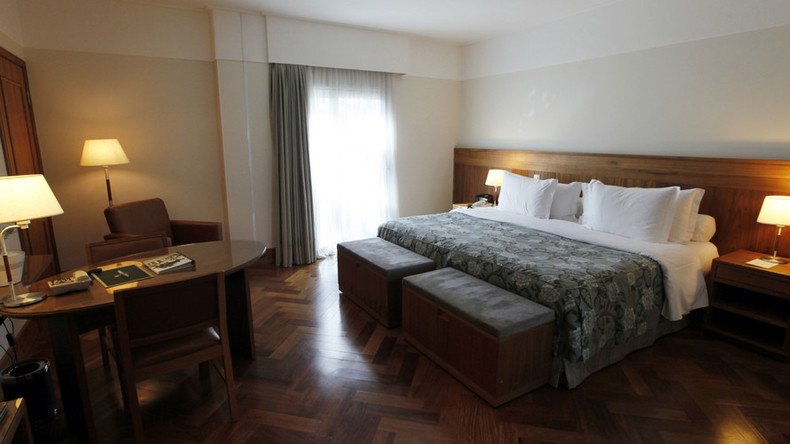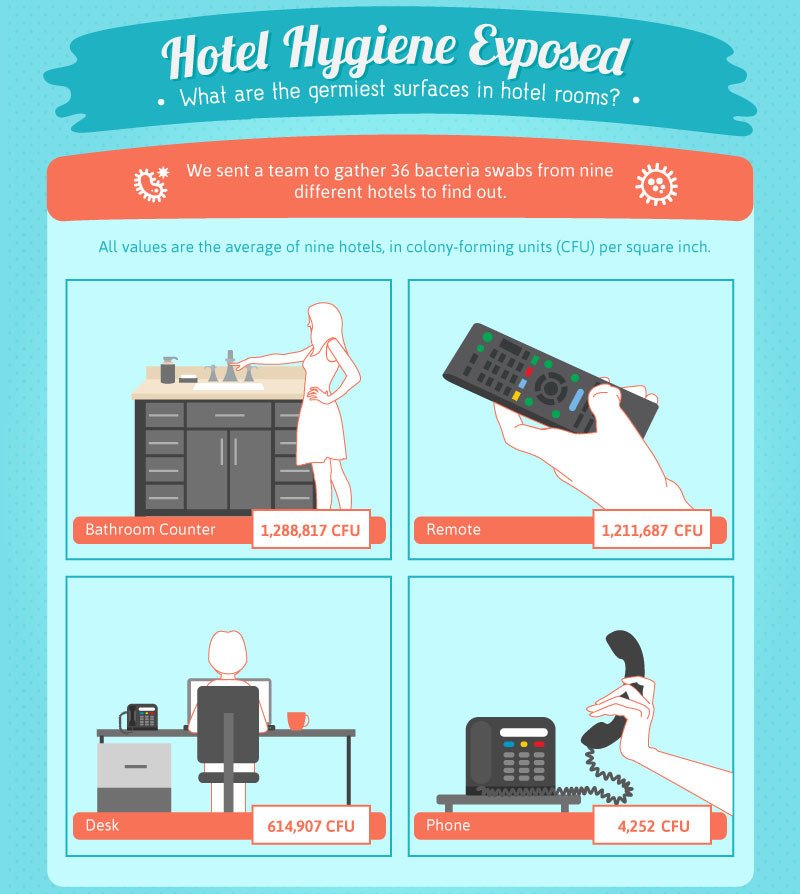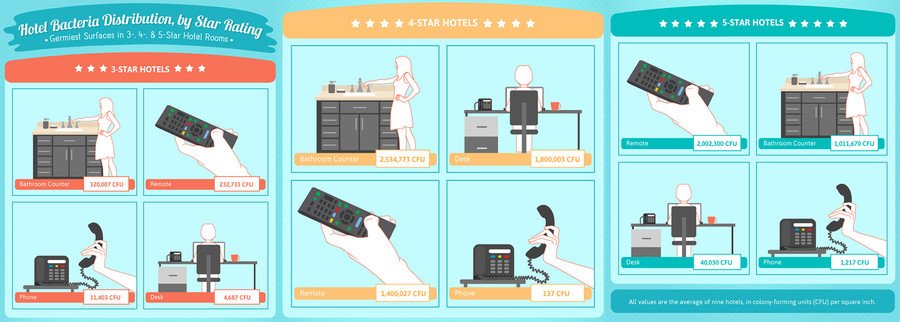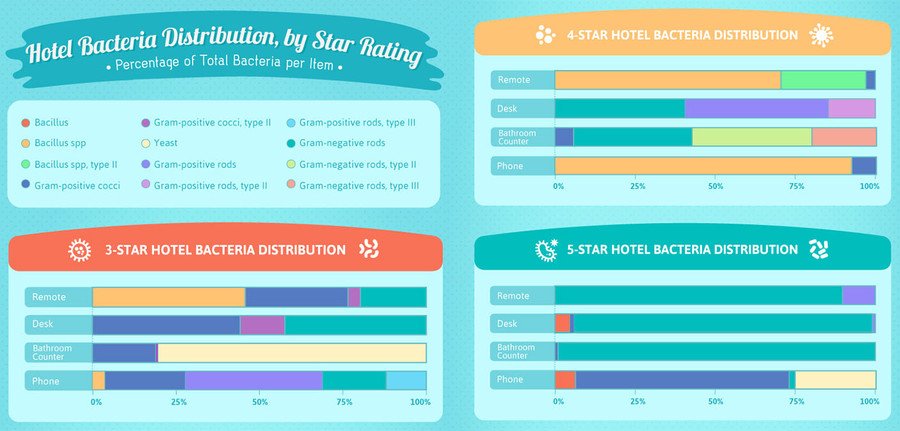More germs for your money: Expensive hotels have more bacteria, study finds

A new study has come out with claims that expensive hotels have more germs than their cheaper counterparts. The surprising conclusion was the result of a general survey on the amount of bacteria present in hotels.
The study, carried out by Travelmath, an online trip calculator, sought to test “for the presence of various types of bacteria (including bacilli and cocci), yeast, and gram-positive roads (bacteria that cause various ailments, such as skin infections and pneumonia).”
The results were surprising – but not for the reasons you’d expect.
“We’re definitely not trying to scare anyone,” Emily Pierce, a project manager at Travelmath, told Yahoo Travel. “We wanted to know just how many bacteria we could find on common surfaces in the hotel rooms.”
READ MORE: Last line breached? Deadly gene resisting all forms of antibiotics found in China
Naturally, it was found that hotels contain more germs than your average home. But the same held true for schools and airplanes.
To arrive at their conclusions, teams resembling CSI forensics entered rooms in nine different US hotels – three, four and five stars. They swabbed the same objects in each room to compare results: the desk, bathroom counter, phone and remote control.

But more surprisingly than the original conclusion, it was found that the higher the star count was for a hotel, the higher the microbe count as well – although numbers varied with regard to different objects.
“That was definitely kind of a surprise for us, because the five-star hotels are known for those extra amenities, the extra service, the extra luxury,” Travelmath outreach manager Cristina Lachowyn said. “So one would assume that the extra money you’re spending for those extra stars would also go into housekeeping!”
Travelmath built on work conducted in previous studies to establish a microbe count, measuring it in colony-forming units (CFU).

The germ count varied vastly between all three classes, but was higher for four and five-star offerings, though not in a uniform manner; it was found, for instance, that bathroom counters in four-star hotels were the worst of the bunch, while remote controls were judged to probably be used more often in five-star hotels, owing to the highest germ count for all objects there. The second-dirtiest place in five-star hotels was the bathroom counter.
With hotel desks, it was found – again – that four-star hotels were the worst, while hotel phones were revealed to be the dirtiest in three-star rooms. This was the one category these hotels lost out in to their more expensive counterparts.
Different conclusions were made as to the reasons for these discrepancies. With four stars, it was clear there were many decorative features – like pillow-top mattresses or extra seating, the authors write. Also, with the decorative furniture, the authors speculate cleaning could be more difficult.

It was interesting to the authors that a high variance existed in germ numbers related to different objects, despite the overall trend of more expensive rooms being dirtier on the whole. All of this could either be attributed to customer habits, cleaning practices and the smoothness and quality of the objects being cleaned.
The authors caution the reader about hygiene, especially handwashing, which they say has been found to reduce the risk of respiratory infections by 16 percent. They further urge hotel guests to disinfect surfaces before touching them, and pay special attention to the dirtiest ones. It would probably be best to not to devour room service food with the same hand you use for the remote control!












